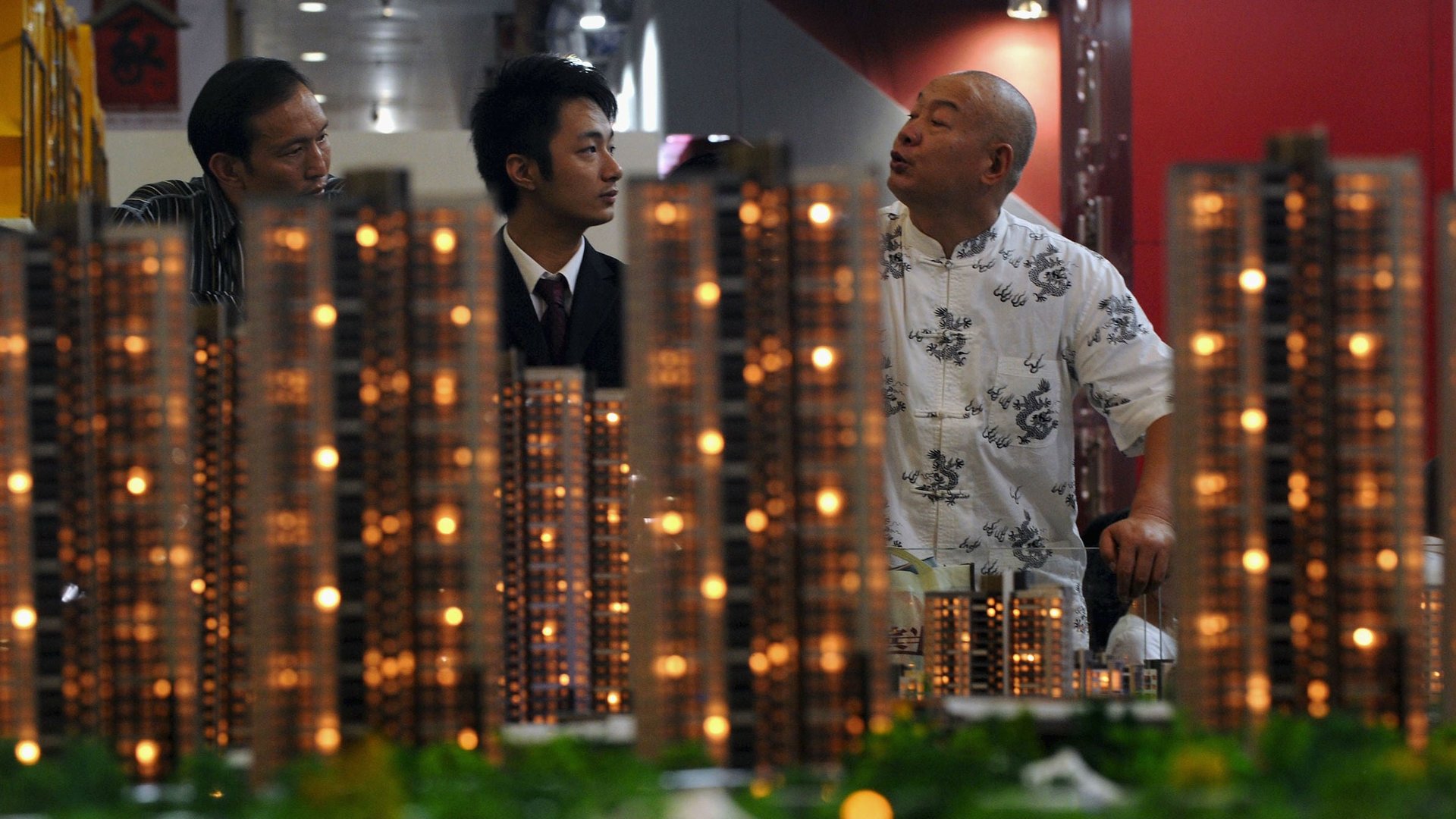Why the Chinese government wants everyone to know Beijing’s first-time home buyers are the youngest in the world
The Chinese media are trumpeting an interesting claim: first-time home owners in the capital city are 27 years old on average (link in Chinese), making them the youngest in the world. That finding is pegged to a survey conducted back in 2010, making the impressive factoid a tad stale. So why bring up a three-year-old report now?


The Chinese media are trumpeting an interesting claim: first-time home owners in the capital city are 27 years old on average (link in Chinese), making them the youngest in the world. That finding is pegged to a survey conducted back in 2010, making the impressive factoid a tad stale. So why bring up a three-year-old report now?
For one thing, home ownership is something of a national obsession. A closed capital system means that investors have few asset classes in which to put their money. Particularly next to China’s volatile stock market, housing is a fairly solid investment. It’s also a critical social milestone. Home ownership is commonly seen as a prerequisite for marriage in China, so much so that men who don’t already own an apartment are often deemed unworthy suitors.
But buying an apartment is still prohibitively expensive for the average middle-class Chinese—and it’s only getting more so. The latest official data showed housing prices growing at their fastest pace in two years.
The sky-high housing market is a long-simmering source of popular resentment that is largely directed at China’s political and business elite. Not only can the wealthy and well-connected afford multiple homes, but they often dodge restrictions on owning multiple homes to do so. This, in turn, props up demand, keeping housing prices beyond the reach of ordinary Chinese.
Recent scandals seem to bear out these suspicions. For instance, to sidestep the rumored anti-corruption crackdown within the party, Chinese officials have reportedly been selling off extra properties. Then earlier this week, a county-level cadre in Sha’anxi province was caught owning 31 properties.
The timing of this news isn’t making things any easier for the Chinese Communist Party. The party is notoriously paranoid about major events, is getting ready for the National People’s Congress in early March. This congress is particularly important since it officially kicks off the 10-year tenure of the new Xi Jinping administration. That means that defusing potential popular unrest to avoid the suggestion of instability will be paramount. Presumably, by re-releasing a report on the relative youth of China’s first-home buyers, the government is not so subtly reminding its citizens that their economic fortunes in China are pretty good.
Even as prices have risen in 2012, China’s housing has gotten more affordable. Today, an average apartment costs around 16 years of average income (paywall), compared to 21 years in 2007 (in the US, it’s typically a single-digit multiple). But that’s more a testament to rising disposable incomes for urban Chinese residents—the average has increased 43% since 2009, compared with a housing-price increase of only 11%.
Still, a government that bars toy helicopters and cab windows that open to prevent public unrest can never be too careful.